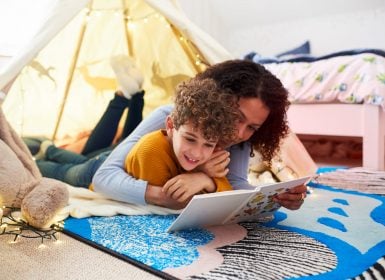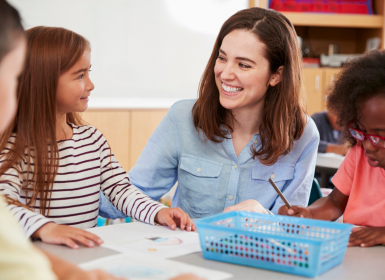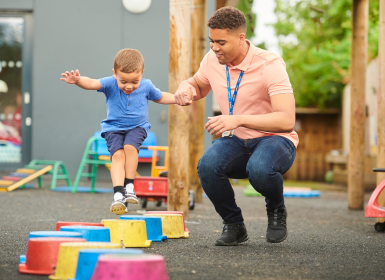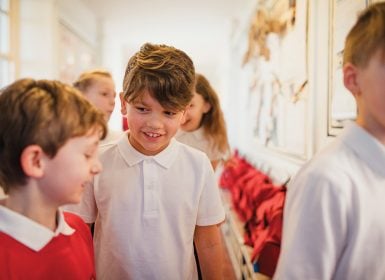During the year your child has learnt many important skills. School holidays are a great time to relax and have fun, but it can also be enough time for this important learning to be forgotten. To avoid this we have compiled a list of suggested activities, games and excursions to keep your child thinking during the holidays. You can use these ideas anytime as they are fun and help your child practice the wonderful skills they have worked so hard to learn. The school holiday activities suggested here provide fun and learning opportunities for any school age child, Enjoy!
Activities for Fine Motor Skills & Handwriting
Here are some ideas and activities for fostering nimble fingers and correct pencil grip and control:
- Play tennis with a balloon.
- Throw and catch bean bags.
- Play Simon Says (touch your head, hop on one foot).
- Use play dough – squeezing, poking, rolling, pinching, twisting, finding coins hidden inside (Google “play dough reciples” for a huge variety of ingredient choices)
- Thread beads or macaroni on pipe cleaners or string – use tweezers to hold beads to make this task more challenging.
- Finger Painting (messy, but great fun).
- Dot-to-Dot drawings or mazes.
- Fold paper to make paper aeroplanes.
- Colouring in (triangular pencils are great for this, Crayola & Faber Castell are just two companies whose triangular pencils are readily available commercially).
- Any fine motor craft activity (making models, gluing, cutting).
- Play games – Marbles, Tricky Fingers, Pick Up Sticks (Fiddle Sticks), Operation, Card Games.
- Cooking – mixing, rolling, measuring.
- Build models with LEGO and blocks.
A favourite Play Dough recipe
2 cups of plain flour
4 tablespoons of ‘cream of tartar’
2 tablespoons of cooking oil
1 cup of cooking salt
2 cups of boiling water
Food colouring of your choice
Activities for Oral Language (Talking and listening)
During and after school holiday activities, try some new and different ways that you can support your child’s language development:
- Ask them to recount a day out with details of ‘When’, ‘Who’, ‘Where’ and ‘What’.
- If you’re out and about in the car, or it’s a rainy day, try some of these games:
- Shopping List – ‘I went shopping and bought bread – milk – sugar’ and the child has to remember what has been said before.
- I Spy – modify by giving clues about what the item looks like and what you do with it rather than just saying the sound it starts with.
- Guess Who – make up some clues about a person using personality traits or what they look like, and have them guess who it is.
- Celebrity Heads – ask your child to think of one of their favourite characters or celebrities and ask questions to uncover who it is.
- Charades: use actions and body language to describe a person, book, movie or activity.
- Play a ‘Barrier Game’ – place a barrier between you and your child and they must use language to make sure both sides of the barrier are the same. For example, your child draws a simple picture and then tells you how to make the same picture – you could also use block towers or bead patters to describe.
- Play games where your child has to listen to directions or answer questions.
- Try some oral sequencing activities – ask your child to order the steps needed to complete a routine activity such as bath time, getting dressed, a shopping trip, cleaning or cooking.
School Holiday Activities for Reading
Encourage reading by making it fun and interesting for them:
- Pick an interesting book (fact or fiction) and read to your child every day – show by example, a love of reading.
- Read purposeful texts with your child (train timetables, movie guides, holiday brochures, recipes).
- Encourage a short 10-minute reading session every day to sit and read with your child.
- Revise sight words in a fun way – write them on cards and play games with them – memory, fish, snap, bingo, old maid and rummy (you need 2 sets of each word to play!)
- Visit the local library to help your child find a type of book they enjoy.
School Holiday Activities for Writing
Test out some creative ways for your child to practice their writing:
- Keep a holiday journal once a week (or more if you can manage it) with details of ‘When’, ‘Who’, ‘Where’ and ‘What’. Have your child draft it on scrap paper and then present it in a project book or type it on a computer. If they want, they could add in souvenirs (movie tickets, photos, trinkets).
- Write a joke book with your child – tell jokes to each other and write them down.
- Make a recipe book – cook with your child, talk about the recipes and put them in a book together.
- Write postcards to family and friends.
- For those children with a wild imagination this is the time to write long, glorious stories because there’s no bell for lunch to disrupt the flow of writing.
School Holiday Activities for Spelling
Remember that there are fun games to help children practice their spelling:
- Play board games such as Scrabble (you can purchase modified versions for young children) and Up Words.
- Play Scategories and Hangman with your child – the whole family can enjoy this too.
Activities for Mathematics
Think about different opportunities to practice basic maths skills:
- All children would benefit from revising times tables – listen to the song in the car, play card games with the times tables written on cards (question on one card, answer on the other).
- Practice basic maths facts using board games – all you need is a blank board game, die, counters and a 12-sided spinner (or number cards or die).
- Use cards and dice lying around the house to play maths games – simply flip two cards or roll two dice and add, subtract or multiple the numbers. The answer can be used to move around a game board or score points for the highest or lowest answer. These games can be made more challenging by increasing the number of cards or dice thrown at any one time.
- Play board games like Snakes & Ladders or Dominoes – basically anything involving counting dice and moving spaces is another opportunity for your child to practice their basic maths facts.
- Design your own games. Children enjoy being creative and can design their own board, materials and rules – lots of skills are practiced with this fun activity.
By Dr Samantha Hornery, Executive Manager of Learning and Education




